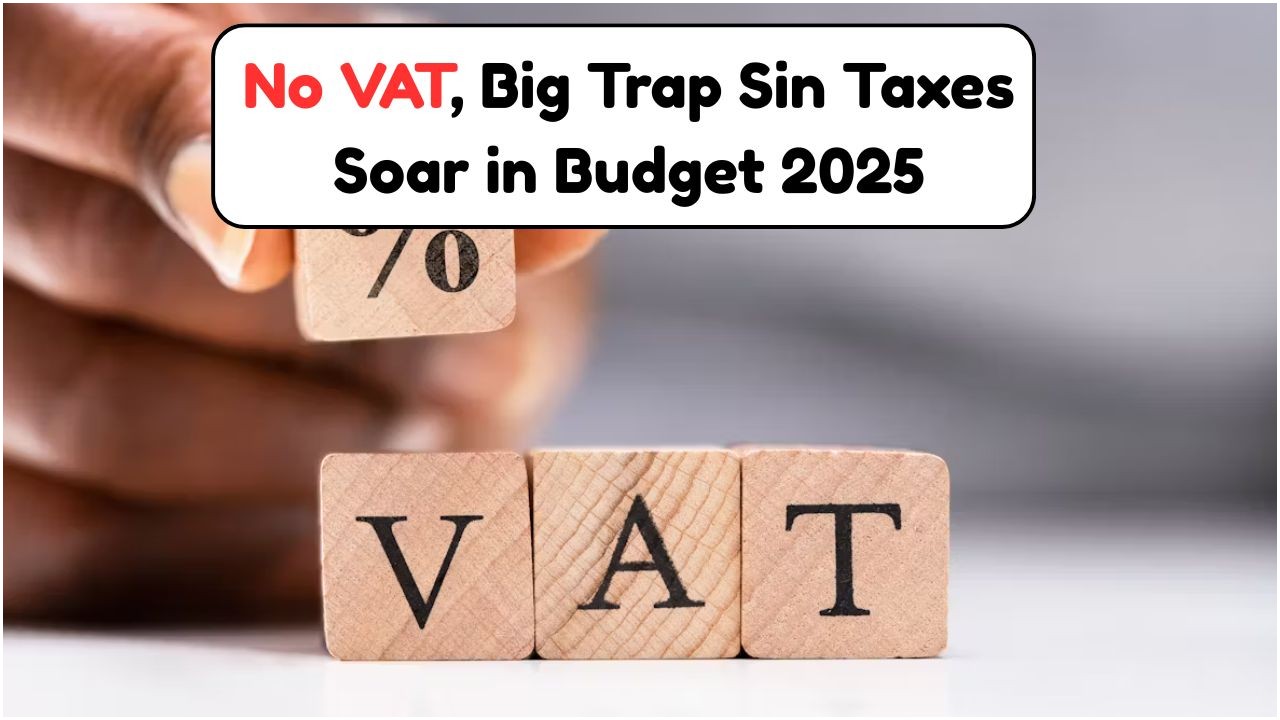Budget 2025 Stealth Tax Alert: In a strategic move announced in the Budget 2025, South Africa has decided to maintain the current Value-Added Tax (VAT) rate, offering a brief respite to consumers amidst economic uncertainty. However, this decision comes with a twist. While VAT remains frozen, hidden tax increases are set to impact essential sectors such as food, fuel, and so-called ‘sin goods’. The government’s focus is on balancing fiscal stability with economic growth, yet this approach may have far-reaching implications for everyday South Africans. The subtle adjustments in taxation on these critical goods could potentially affect the cost of living, leading citizens to recalibrate their household budgets. As we delve deeper into the specifics, it becomes clear that while some areas see relief, others may struggle under the weight of these hidden tax burdens.
Understanding the Impact of Hidden Increases on Food and Fuel
The decision to freeze VAT in 2025 has undoubtedly been welcomed by many. However, the hidden increases on food and fuel could have significant consequences for consumers. Food prices, which are already subject to fluctuations due to global market trends and local supply issues, may see additional pressure from increased taxation. This could exacerbate food insecurity in a country where many households already struggle to afford basic necessities. Fuel, a critical component of both personal and commercial transportation, is also seeing a hike. Increased fuel costs can ripple through the economy, affecting everything from the cost of goods transportation to daily commuting expenses for individuals.
- Food prices could rise further due to increased taxes.
- Fuel hikes may lead to higher transportation costs.
- Household budgets might need to be adjusted accordingly.
- Potential increase in the cost of living for South Africans.
The Financial Burden of Sin Goods Taxation
In addition to food and fuel, the so-called ‘sin goods’—alcohol, tobacco, and gambling—are facing significant tax increases. These goods have long been targets for taxation due to their perceived societal costs. The increased taxes are part of a broader strategy to discourage consumption while simultaneously raising government revenue. However, this approach can have a regressive impact, disproportionately affecting lower-income individuals who spend a larger portion of their income on these items. For businesses in these industries, the increased taxes could mean higher operational costs and potential layoffs, further impacting the economy.
| Item | Previous Tax Rate | New Tax Rate | Projected Increase | Impact |
|---|---|---|---|---|
| Alcohol | 15% | 18% | 3% | Higher prices |
| Tobacco | 12% | 15% | 3% | Reduced consumption |
| Gambling | 10% | 12% | 2% | Potential revenue drop |
Strategies to Mitigate the Impact of Budget 2025 Tax Changes
For many South Africans, navigating these new tax changes will require strategic planning and adjustments. Managing household expenses and finding ways to reduce spending in taxed areas will be crucial. Simple strategies such as budgeting more effectively and exploring cheaper alternatives can help mitigate the impact of increased costs. Additionally, for businesses, especially those involved with sin goods, adapting and innovating could be the key to survival. This might involve diversifying product offerings or improving efficiency to offset the increased tax burden.
 Thousands Stranded by August NSFAS Blockages: Discover the Viral R5,200 WhatsApp Hack to Solve It
Thousands Stranded by August NSFAS Blockages: Discover the Viral R5,200 WhatsApp Hack to Solve It
- Implement a detailed household budget.
- Consider alternative, cheaper products.
- Businesses should innovate and diversify.
- Engage with financial advisors for planning.
Public Reaction to Budget 2025 Tax Measures
The public’s reaction to the Budget 2025 tax measures has been mixed. While some appreciate the stability offered by the VAT freeze, others express concern over the increased costs of essentials and sin goods. Social media platforms and community forums have become hotbeds of discussion as citizens voice their opinions and share personal strategies for coping with the changes. It’s clear that while the government’s intention is to stabilize the economy, the immediate impact on individual finances remains a significant concern for many.
- Mixed reactions from the public.
- Concerns over increased living costs.
- Active discussions on social media.
- Community strategies for coping.
Evaluating the Economic Implications of Stealth Taxes
Economists and analysts are closely watching how these stealth taxes will influence the broader economic landscape. The increased tax burden on essential goods and sin goods may lead to reduced consumer spending, which could slow economic growth. On the other hand, the additional revenue generated could help fund public projects and reduce national debt. It’s a delicate balance that requires careful monitoring to ensure that long-term benefits outweigh short-term challenges.
| Aspect | Potential Positive Outcome | Potential Negative Outcome | Overall Assessment |
|---|---|---|---|
| Consumer Spending | Increased savings | Reduced consumption | Mixed |
| Government Revenue | Higher income | Public backlash | Positive |
| Economic Growth | Debt reduction | Slower growth | Neutral |
FAQ Section
What is the VAT rate in South Africa for 2025?
The VAT rate remains at 15%, unchanged from previous years.
How will the hidden tax increases affect food prices?
Food prices may rise due to increased taxes, impacting household budgets.
What are sin goods, and why are they taxed higher?
Sin goods include alcohol, tobacco, and gambling, taxed higher to discourage consumption and raise revenue.
How can I manage the increased costs due to these taxes?
Implementing a budget and seeking cheaper alternatives can help manage increased costs.
 Eastern Cape School Shuts Down Amid #JusticeForCwecwe Uproar: Parents Call for Immediate Action
Eastern Cape School Shuts Down Amid #JusticeForCwecwe Uproar: Parents Call for Immediate Action
Will these tax changes affect the South African economy?
The changes could slow consumer spending but may help reduce national debt.









